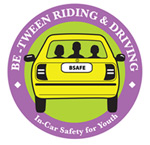
The Maryland Institute for Emergency Medical Services Systems offers the CPS & OP Healthcare Project as part of its EMS for Children program. The project is funded by the Maryland Highway Safety Office with use of federal funds. The focus of the project is to promote “best practice” child passenger safety (CPS) & occupant protection (OP) education and discharge policies for Maryland hospitals and health care professionals. Education and resources are provided free of charge to Maryland's hospitals to ensure that parents and caregivers are doing the most they can to keep children safe.
Maryland hospitals to get free car seats for families in crashes
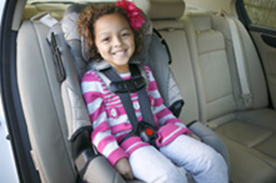 This MIEMSS’ project, with funding from the Maryland Highway Safety Office, will be giving some free car seats and patient education materials to Maryland hospitals starting in Spring 2020. Hospital emergency department staff can then give them to families being discharged from the ED to help keep their patients safe.
This MIEMSS’ project, with funding from the Maryland Highway Safety Office, will be giving some free car seats and patient education materials to Maryland hospitals starting in Spring 2020. Hospital emergency department staff can then give them to families being discharged from the ED to help keep their patients safe.
If you are registered to participate in this project and want to view the short, online training, "CPS Webinar - Child Passenger Safety in Emergency Departments 2020", Click Here.
To see details about what you would receive through this project, Click Here.
If you are interested in participating, send an email to cps@miemss.org
2021 Webinars
Upcoming Webinar - February 19, 2021
- Vehicle Occupant Kinematics, Case Studies, and Tips for First Responders at Crash Sites
- Presentation: Friday, February 19, 2021; 9:30 - 10:45 am (EST)
- Description:
What forces occur in a motor vehicle crash? How do specific occupant restraint devices work to counter crash forces? How does misuse of occupant restraints potentially affect driver and passengers’ injury patterns? Two Maryland crash re-constructionists, Tracie Eckstein Jones from Rimkus Consulting Group, Inc., and Justin Zimmerman from the Maryland State Police, will cover these issues as well as illustrate crash dynamics with case studies. Additionally, the webinar will cover what first responders need to notice and document at a crash scene regarding the vehicle and occupant restraints in order to make eMEDS and crash reports more effective.
- Speakers:
- Tracie Jones, B.S.M.E, ACTAR, CPST, Rimkus Consulting Group Inc.
- Justin Zimmerman, CPST; Sergeant, Maryland State Police. CRASH Team
- Register: https://attendee.gotowebinar.com/register/52641730194103308
Webinar ID 730-120-187
- This webinar is approved by Safe Kids Worldwide for one CEU towards CPST recertification and by MIEMSS for CEU credit for emergency medical clinicians.
Upcoming Webinar - March 11, 2021
- Data Collection Methods & Analysis for Useful Results in Child Passenger Safety
- Presentation: Thursday, March 11, 2021; 1:00 - 2:30 pm
- Description:
This webinar will introduce some key databases on occupant protection and child passenger safety, explaining how the data is gathered, important results for the U.S. and for Maryland, and how data guides and modifies interventions. Experts from Westat and “The National Digital Check Form” (NDCF) will describe the NDCF, recent analysis of its results, and how to obtain user data or local summaries. In-person car seat check-ups will be contrasted with video check-ups on a variety of criteria. CPSTs will learn tips to more effectively observe and document their work with car seats, and how to tease out the data they need.
- Speakers:
- Adele Polson, CPST, Project Director, Westat
- Jennifer Booge, CPST/I, Field Training Coordinator, National Digital Check Form Maryland Kids in Safety Seats
- Sean Lynn: Risk Analysis of Vehicle & Environmental Network. (RAVEN)
- Register: https://attendee.gotowebinar.com/register/1446307903084907280
- This webinar is approved by Safe Kids Worldwide for one CEU towards CPST recertification and by MIEMSS for CEU credit for emergency medical clinicians.
2020 Webinars
Upcoming Webinar
- CPS in the Time of CoVID: An update on Maryland services and preparation for future efforts.
Psychology of Child Occupant Protection
Emma Sartin, MPH, PhD, describes her research into the effectiveness of interventions to increase car seat use including anticipatory counseling, and transitions from harnessed seats to boosters. She also gives an overview of disparities in CPS use in U.S. children. A panel of clinicians and safety advocates comment on the research findings in light of their diverse experiences.
To receive CEU credit, listeners must answer and return the quiz and get 80% or greater correct.
Safe Transport of Children in Wheelchairs: An update and case studies
Therese Pelicano, CPTS and former Transportation Manager for Frederick County Public Schools gives an overview of how children using wheelchairs should be transported safely. Elizabeth Farrell, PT, CPST from Kennedy Krieger Institute presents two case studies. An additional video shows a parent’s perspective (Carolyn Darrehmane, RN, CPST)
To receive CEU credit, listeners must answer and return the quiz and get 80% or greater correct.
Webinar: Understanding the WHY of Seatbelts and Child Restraints
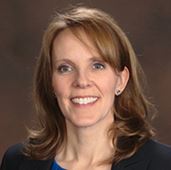
presented by: Janet Bahouth, DSc, CEO and Co-founder, Impact Research
recorded: September 9, 2019
What really happens in the total crash (before/during/after) to occupants? Dr. Bahouth will explain this from a child and an adult's point of view illustrating with photos and descriptions of actual crashes, and crash outcomes will be analyzed for restrained vs unrestrained occupants. Dr. Bahouths's research on restraint use in local elementary school children will be covered, and she will give tips for using crash dynamics to motivate car occupants to buckle up.
Child Passenger Safety Technicians (CPSTs) who listen to this webinar and answer a 10 question quiz with 80% correct can receive 1 CEU toward their CPST Recertification.
Preventing Child Heatstroke in Cars
Preventing Child Heatstroke in Cars
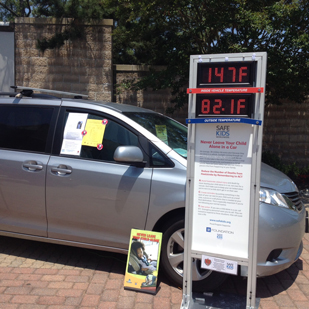
Maryland healthcare agencies can borrow the outdoor heatstroke prevention display, with the in-and-out-of car temperature monitors that show how quickly a car heats up. For more information about the display, contact cps@miemss.org. This 20" x 78" metal stand comes in 3 parts in a large plastic case (28" x 48" x 13"; 125 lbs). Five large magnets are also provided for your display vehicle to convey additional prevention messages, along with handouts.
Car Seat Safety
Need a car seat checked for safety?
Want to learn how to re-install it properly?
NICU & Newborn Nursery Resources on CPS
Guidelines & Resources for Providers
To request an educational session on car seat safety for your unit's staff,
please contact our Project coordinator at: cps@miemss.org
Car Beds & Seats for Premature or Medically Fragile Infants.mov (14 min. 24 secs.)
Updated Best Practice Guidelines on ICSC Test (11/2018)
Hospital Discharge Recommendations for Safe Transportation of Children
Patient Education
Information for Parents: The Infant Car Seat Challenge Test (11/2018)
The Infant Car Seat Challenge Test - Spanish Version (11/2018)
Safe Ride News handouts on car seat topics - available in quantity.
Contact cps@miemss.org to order these free materials
Helpful Resources & References
Automotive Safety Program at Riley Children's Hospital
Carseats with Best Fit for Preemies & Small Newborns
SAMPLE waiver Form for Parents/Caregivers refusing to comply with hospital policy on safe transport of newborn
Car Seat Information
New, Free Car Seat Safety Materials
11 x 17" color poster: "Car Seat and Seatbelt Ages & Stages for Children"
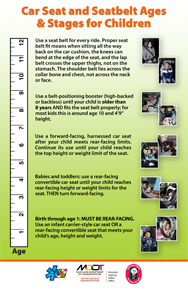
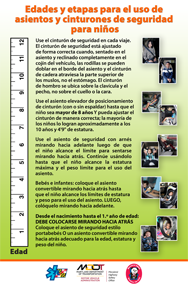
English Spanish
8.5 x 11" color information sheet" "Safest Travel for the Youngest Passengers." Available in English, Spanish, Russian, Chinese, and Korean. One can be mailed to you to copy or you can download these from our website.
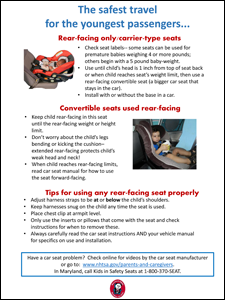
To receive up to 10 Free posters or a set of printable "Safest Travel" handouts in five languages, email cps@miemss.org, or go to our website: www.miemss.org/home.emsc/cps
Transporting Children with Special Needs
Resources:
Glossary for Special Needs: Technology Assisted Care Equipment, Medications & Machines (Printable PDF - Updated 2004)
Glossary for Special Needs: Disabilities & Medical Terminology (Printable PDF - Updated 2004)
American Academy of Pediatrics Policy Statements for Children with Special Needs:
• Selecting and Using the Most Appropriate Car Safety Seats for Growing Children: Guidelines for Counseling Parents /AAP Policy Statement
• Safe Transportation of Premature and Low Birth Weight Infants
• Safe Transportation of Newborns at Hospital Discharge
• Transporting Children with Special Health Care Needs
Other Links:
The following are links to resources where you can obtain further information on various special health care needs.
- The Automotive Safety Program at Riley Hospital: https://www.preventinjury.org/
- Center for Parent Information and Resources: https://www.parentcenterhub.org/find-your-center/
- American Occupational Therapy Association (AOTA): https://www.aota.org/
- American Physical Therapy Association (APTA): https://www.apta.org/
- Autism Society of America: https://autismsociety.org/
- Epilepsy Foundation-National Office: https://www.epilepsy.com/
- Hydrocephalus Association: https://www.hydroassoc.org/
- Little People of America: https://www.lpaonline.org/
- March of Dimes Birth Defects Foundation: https://www.marchofdimes.org/
- Maryland Medicaid Coverage Criteria for Specialized Car Seats for Children (Effective 9/19/17): https://miemss.org/home/Portals/0/Docs/EMSC/CPS_Project/Specialized-Adaptive-CarSeat-criteria-MDMedicaid.pdf?ver=2017-10-24-093138-803
- National Association for Down Syndrome Society: https://www.nads.org/
- New Resource on Transporting Occupants with Special Healthcare Needs in Wheelchairs: https://www.rercwts.org/
- Osteogenesis Imperfecta Foundation: https://oif.org/site/PageServer
- Spina Bifida Association of America: https://health.gov/myhealthfinder/findservices?code=HR0421
- United Cerebral Palsy:https://ucp.org/
Pre-Driver Education Program
Motor vehicle crashes are the leading cause of death for youth, yet preteens are less likely to be buckled up than younger children and adults, .and they often have other behaviors that increase their risk, such as distracting the driver, sitting in unsafe positions, and riding with unsafe drivers.
MIEMSS is seeking to address the problem with an innovative community or school-based educational program.
The Be-Tween Riding and Driving program has nurse and safety advocates educate youth ages 10 to 15 years to ride more safely in vehicles. The program builds on youths’ interest in becoming drivers in the near-future and uses a variety of educational techniques including: discussion, hands-on practice, audio-visuals, role plays, games, and pledging. Parents’ participation is an optional component of the safe driving pledge, which uses the Safe Kids Worldwide program, “Countdown2Drive.”
The program and its materials are free to Maryland safety advocates and educators. Train-the-trainer sessions can be scheduled by contacting the CPS & OP Healthcare Project, 410-706-8647 or cps@miemss.org.
Facilitator Materials:
New Program Teaches Tweens to be Safer Car Occupants
Promotional Flyers for Tween Program
Principal Letter
Parental Permission Form
Pre Questionnaire for Participants
Post Questionnaire for Participants
Facilitator Feedback Form
